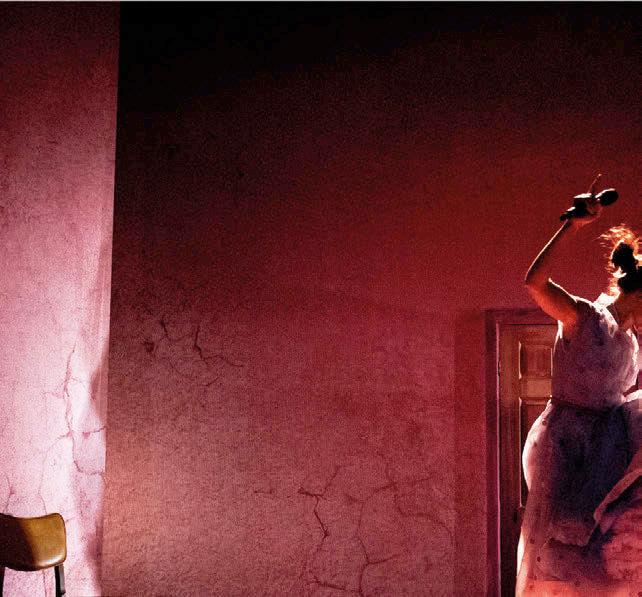FOOD & DRINK
MOVE OVER, DALING Since its launch in 2018, Bristol’s Dal Festival hasn’t merely grown in size: it’s gone nationwide. Let Nick Saltmarsh, the Dal Fest chair, give you the dalicious lowdown. Say peas…
I
n the spring of 2018, we received a press release announcing the inaugural outing for the British Dal Festival. Not the ‘Bristol’ Dal Festival, mind, but the ‘British’ one, even though it was launched right here in the city. And it wasn’t just some little fly-by-night weekend affair, either, but a full week-long event. We covered it in the magazine, we made the obligatory pun about taking the pulse; but deep down, we were sceptical. Was there really that much fun to be had from puréed peas, beans and lentils? Once again, we were wrong. With numerous chefs and restaurants enthusiastically jumping on board, the first festival proved a major hit with Bristol foodies, and after an equally successful 2019, the festival is returning for third helpings for 2020 – and now it’s accrued a nationwide following, as Nick Saltmarsh explains.
Which would those new Bristol venues be, then?
So Nick; how has the festival changed since it launched in 2018?
Pulses are so valuable in combating climate change and increasing biodiversity that the United Nations designated 2016 as the International Year of Pulses, and 10 February every year is now World Pulses Day. Introducing pulses into farm crop rotations brings many environmental benefits. As leguminous plants, all pulses fix atmospheric nitrogen, reducing the need for energy-intensive artificial fertilisers. They increase microbial activity in soils, increasing biodiversity and building resilience to soil stress. Pulses also require less water than other crops, and many varieties are drought-tolerant.
In its first year, the British Dal Festival was entirely focused on Bristol, but it’s since grown to span the country. 2019 saw events celebrating dal from Lewes to Norwich, with dal being served from Whitstable to Leeds. In 2020 we’re expecting the nationwide Dal Trail to be bigger than ever, but always with plenty of new and favourite Bristol restaurants on board.
We’re excited to have Bocabar’s new Finzels Reach restaurant on the Trail; other Bristol newcomers include Café Matariki in Redcliffe and Chai Shai Kitchen on Jacob’s Wells Road. But surely dal’s just a bowl of mushy lentils, isn’t it? *ducks*
No! There are hundreds of varieties of lentils, beans and other pulses, and thousands of traditional dal recipes from across the Indian subcontinent, from simple but sustaining everyday dishes to extravagant dals for feasting on special occasions. Not only that, but almost every global culture has its own traditional pulse crops, and equivalent dishes to dal, from Mexican refried beans and Greek fava dips to British mushy peas. Cerys Matthews has said that pulses are ‘one of our best weapons against climate change’ – explainy?
What’s the best dal you have ever eaten?
Almost every dal is magnificent, and the best dal is the dal I’ve eaten most recently. Right now, my best dal was last night’s supper, made with split yellow peas, aubergine, tomato, fenugreek, coriander and coconut milk. If people could take just one thing from the festival, what would you like it to be?
Realising the enormous variety of delicious ways to cook, eat and enjoy pulses. They’re among the healthiest foods, with great benefit to be had if they’re eaten on a daily basis. How do we get involved?
Anyone anywhere can get involved by cooking up one of the dozens of recipes on the British Dal Festival website. Or find a restaurant on the Dal Trail and go out and enjoy the chef ’s speciality dal… Find out more at www.britishdalfestival.com DAL AFTER DARK On 27 March, St Nick's Night Market is holding a one-off Dal special edition with dal-based street food, cookery demonstrations from the likes of Jenny Chandler and Kalpna Woolf, Bollywood dance classes, street games and rangoli painting – all in celebration of the magic of dal. Find the event on Facebook.
76 I BRISTOL LIFE I www.mediaclash.co.uk






















